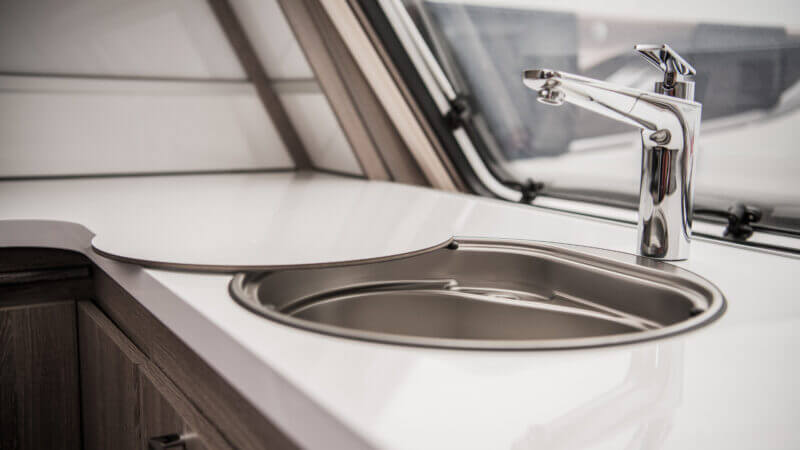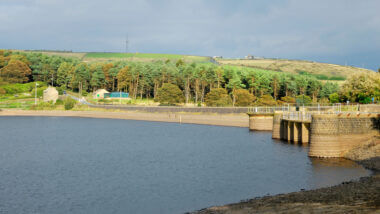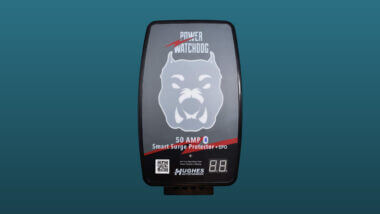Table of Contents Show
An RV freshwater system can help you use your RV off-grid and in many unique and memorable places. Camp among pines, on the beach, or with a beautiful landscape view of a mountain range. Let’s look at how an RV freshwater system works and how it can expand your opportunities for adventure.
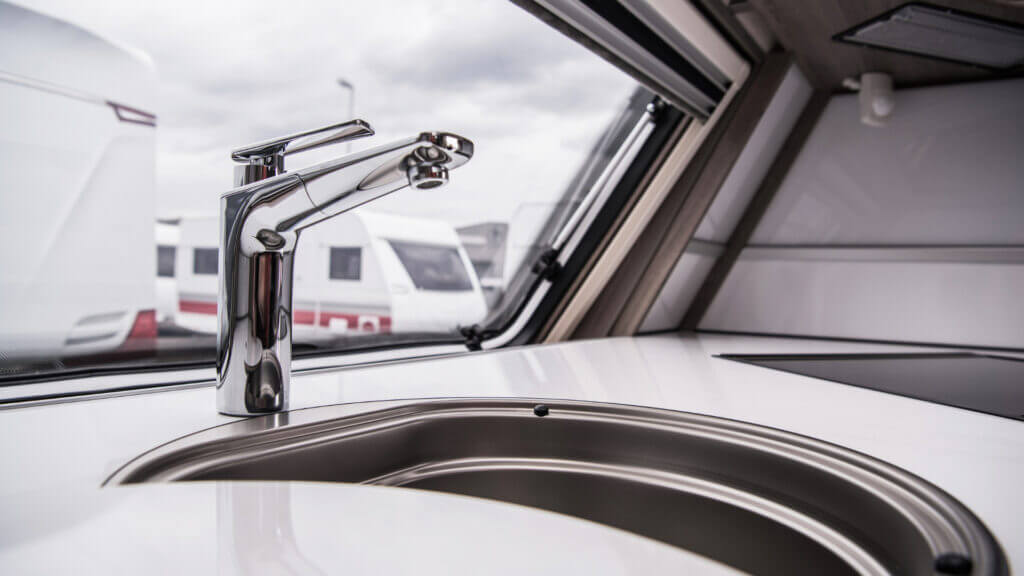
What Is an RV Freshwater System?
An RV freshwater system uses a port to fill the freshwater tank and has a water pump, water heater, water fixtures, and water lines. It functions much like a residential plumbing system, but the water pump pushes water to faucets, the toilet, and the showerhead.
An RV freshwater system can bypass the water pump by connecting to a campsite’s water spigot. The pressure provided from the water spigot will pressurize the lines and allow water to reach the fixtures. You need this system to run smoothly whether you plan to go off-road or stay at a campsite.
Components of the RV Freshwater System
An RV freshwater system has several components that work together to provide water to the various fixtures. You’ll either use the city water connection or a water fill port to fill your freshwater tanks. They serve as holding tanks for your system, especially if you’re doing some off-grid camping.
The water from your freshwater tank will travel to your RV’s fixtures due to your water pump. A water pump will pressurize the water lines in your water system. When you open a water fixture, the pressure will be released and allow the water to flow. The water pump will continue to try to repressurize the lines, which continues the flow of water. Once the fixture is closed, the lines will repressurize, and the pump will shut off.
Your system will also likely include a water heater that will run off propane, electric, or both. The water heater does precisely what its name indicates; it heats the water. An RV water heater will be substantially smaller than a residential water heater.
You’ll want to make sure you shower quickly and allow time between showers for the water heater to reheat the supply of water or install this upgrade!
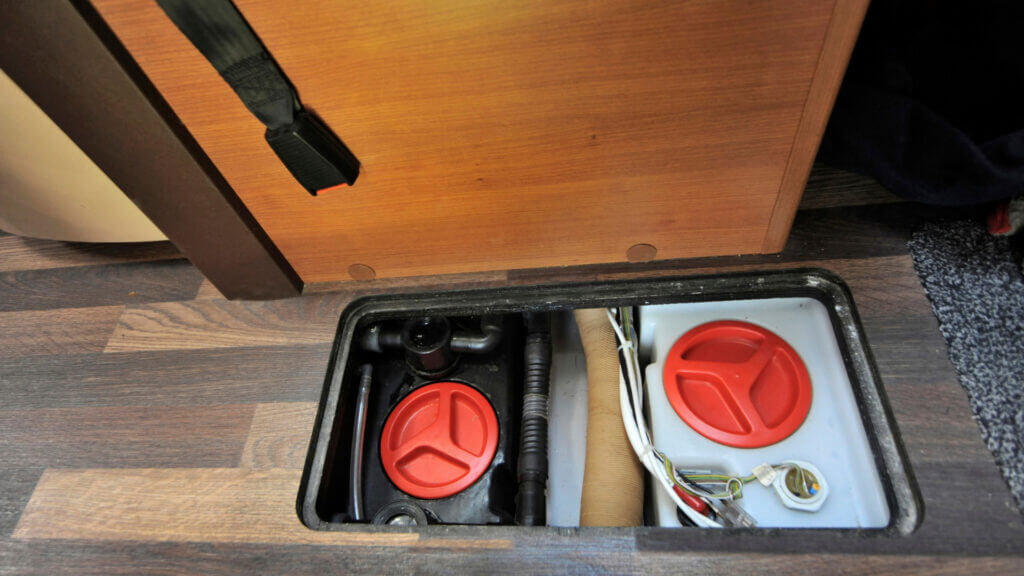
Supplies You Need for Your RV Freshwater System
To keep your RV freshwater system running efficiently, you’ll need a few supplies. Invest in a quality potable water hose. Your water hose should be rated for potable drinking water. Many non-potable water hoses contain harsh chemicals that you don’t want in your freshwater system.
Also, make sure to have a water pressure regulator to connect to either the spigot or at the end of your potable water hose. An RV’s water line system isn’t rated to handle excessive pressure. These water lines can take a maximum of 60 PSI before issues arise. A water pressure regulator will help limit the water pressure entering your RV, which helps protect your water lines from cracks and leaks.
Investing in a quality water filter is another essential item for your RV freshwater system. These water filters come in varying sizes and prices based on the level of filtration they provide. It’s likely the more you spend, the higher the filtration rate will be.
Pro Tip: Don’t get sick! Learn how to sanitize your RV water tank and add it to your regular maintenance calendar.
What Is the Difference Between the City Water Port and Freshwater Fill?
There are often two different water fill connections, a city water port, and a freshwater fill. A city water port will utilize the pressure provided by the water spigot. This will bypass the water pump and allow you a seemingly endless supply of freshwater.
A freshwater fill port is a port you utilize to fill your RV’s freshwater tank. RV freshwater tanks vary in size, so be sure to consult your RV’s manual for your freshwater tank size. Your water pump will move the water from the freshwater tank into your lines.
It’ll continue to pump water to the lines as long as there’s water in the freshwater tank. You’ll notice your freshwater tank is getting empty when your water pump begins to sound louder and rougher than usual.
How Does the Freshwater System Work?
The freshwater system works in one of two ways. When utilizing the RV’s city water connection, the water lines will be pressurized from the water pressure from the spigot when all fixtures are closed.
When using the freshwater tank supply, the water pump will pressurize the lines when all fixtures are closed. In both instances, opening a fixture will let water flow until the fixture is closed. A fixture could be a showerhead, sink, or toilet.
RV Freshwater System Maintenance
It’s important to maintain your RV freshwater system. Sanitize your water lines and system every six months. You can do this by running a water-bleach solution through your lines and letting it sit overnight.
Consult your RV’s manual to verify the proper procedures for sanitizing your water lines. If you begin to notice a smell in your water, it’s been too long.
The freshwater system in your RV is an integral component of your rig. It doesn’t matter whether you’re regularly boondocking or camping in a campground. You should make sure your water system is in tip-top shape. What freshwater system maintenance tips would you share with other campers?




